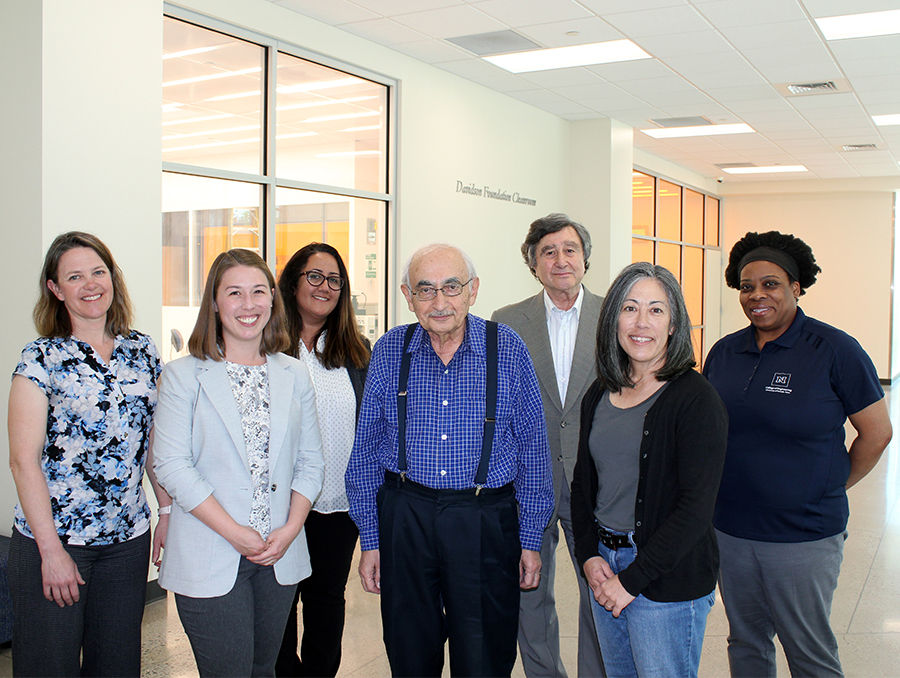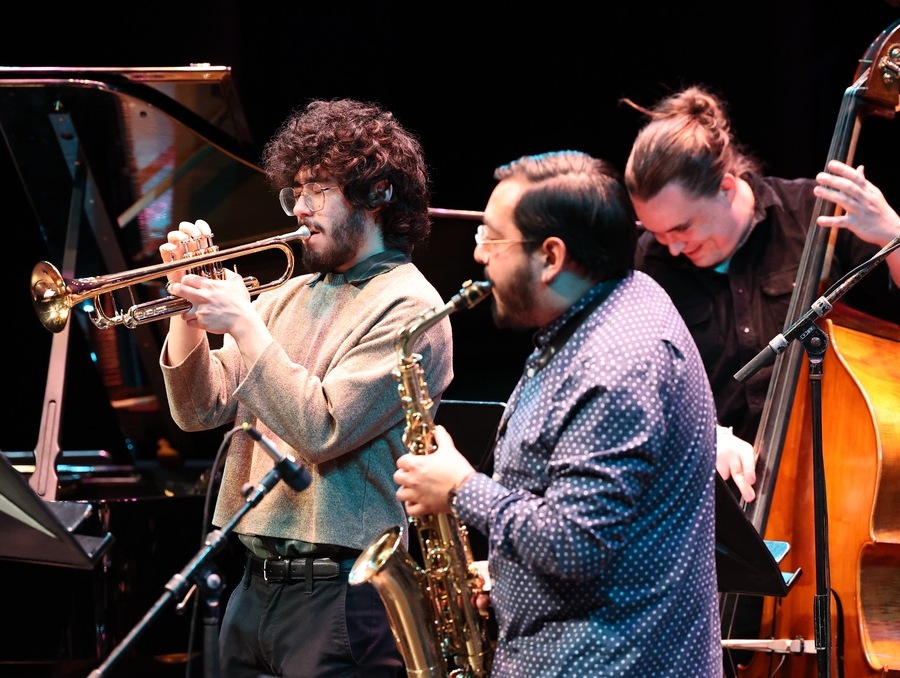When he joined the faculty of the University of Nevada, Reno nearly 10 years ago, Greg Pari already had an excellent handle on the things that he thought would be most important in his role as a professor of microbiology and immunology.
Little did he know what the future would hold.
Spend a few minutes with Pari, and you will quickly find that he touches all the bases of a great teacher: rock-solid knowledge coupled with a good sense of humor and a natural ability to find the most human connection to any situation.
Pari’s first exposure to research was as a graduate student working in the laboratory of Nevada's respected infectious disease researcher, Stephen St. Jeor. From the research laboratories of the University’s School of Medicine, Pari moved to a position for the New York State Department of Health then on to private industry, helping found the Montreal, Canada-based biotech company, OriGenix.
The road back to academia
When his wife, Karyn, earned a one-year internship in her field of clinical psychology somewhere in the West, Pari, naturally, was excited about the opportunity to return to Nevada. The couple had met in Reno when Pari was a graduate student and Karyn was a postdoctoral fellow in pharmacology.
“My intention, though, was never to go into academics,” Pari, 47, explained. His mentor, St. Jeor, helped Pari obtain a research track faculty position that, thanks to Pari’s research abilities, led to a full-time faculty position.
“It took a lot of getting used to,” he said of moving from private industry to a faculty position. “In a company setting, the dynamic was such that you would sit down with an action plan, get everybody together, and say, ‘This is what we need to do. Great, now let’s go out and do it.’
“In the world of academics, things are different. I’m a high-energy, let’s-get-things-done kind of guy, so there was a definite transition period for me. I’ve learned where the emphasis needs to be … first and foremost, on the students.”
Although he says the transition took a while, it’s clear today that for Pari, everything he does begins and ends with students — not only the graduate students who work daily in his lab in the Howard Medical Sciences Building on the School of Medicine campus, but all of the students who are part of the University’s graduate program in Cell and Molecular Biology, which he directs.
When he speaks, explaining what he does and how he does it, research seems to come to life and to take on a personality.
When he dissects the process of grant writing for a visitor, for example, it almost sounds like the words of a theater review, likening the successes and failures of research to words that seem to echo the great line from Winston Churchill, that “Success is never final, failure is never fatal.”
Says Pari: “Even if something is not accepted, you have to pull yourself up and you have to continue to motivate yourself. Give yourself three minutes of mourning, and then it’s on to something else.”
The place of research
Given this philosophy, it’s not surprising that he enjoys imparting important lessons to his students. They are lessons that, in a more personal sense, seem to reach far beyond the equally important research he conducts in his lab on two herpesviruses, human cytomegalovirus (HCMV), and human herpesvirus type 8 (HHV-8).
Pari’s work with HCMV focuses on constructing mutant viruses in which a specific replication gene is deleted. The new mutant virus is then used to infect human cells to observe how the virus replicates with the essential genes missing from the genome. With HHV-8, also known as Kaposi’s sarcoma associated herpesvirus, Pari is investigating ways to better understand how the virus replicates. Since HHV-8 can be a clear cause of cancer, his research has strong implications for third world countries, where HIV and AIDS treatment has lagged.
“What excites me — and sure, the research part of my job is great and exciting — but the real important part of what I do is working with students,” Pari said. “The four or five years in graduate school is like childhood compacted. You come into the lab, not knowing a thing, being really overwhelmed. And then you go from that to being the expert. And then what happens is that those being taught become the teacher. And I learn from them.”
He smiles, genuinely amazed at the process, and how it plays out, practically each time he invites a student into his laboratory: “My students surprise me every day.”
The most important thing
Pari’s teaching philosophy revolves around the notion of hard work and persistence — qualities he learned early in life, from his father, Severino, and his mother, Dorothy. Severino was a tailor who “couldn’t speak a word of English,” Pari said, when Severino arrived in America from Italy at age 16.
Growing up in North Providence, R.I., Pari learned early in life to value education.
“My father barely graduated from high school …. I think he got his GED at some point, but for everyone in my family, the message always was, ‘You must go to college.’ My father was really excited that all three of his children went to college,” Pari said.
Over the years, Pari has found a fine balance between continuing his research agenda and, as well, in preparing his graduate students for the next steps in their professional lives.
His message to them?
“What I always tell my students, and I suppose this could be my motto, is that you can’t always be the smartest person in the world … you can’t always be the most skilled, because there are always things that you’ll never be able to do better than the guy next to you,” Pari said. “And you can’t be the luckiest, though you may get lucky from time to time.
“The one thing that you can control, though, is persistence. You can be the most persistent person in the world. That’s the one thing you can control.
“If there is one piece of advice that I leave with my students, it’s that this is a competition, and this can be a very competitive world. You can’t always be smarter or more skilled or luckier … but you can be more persistent.”











